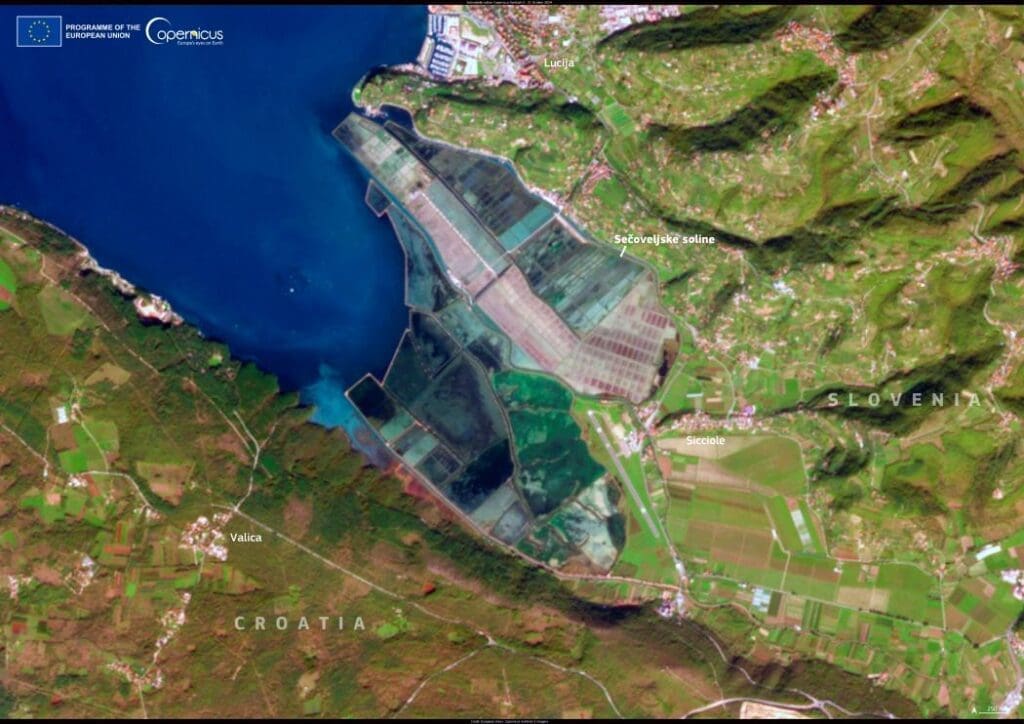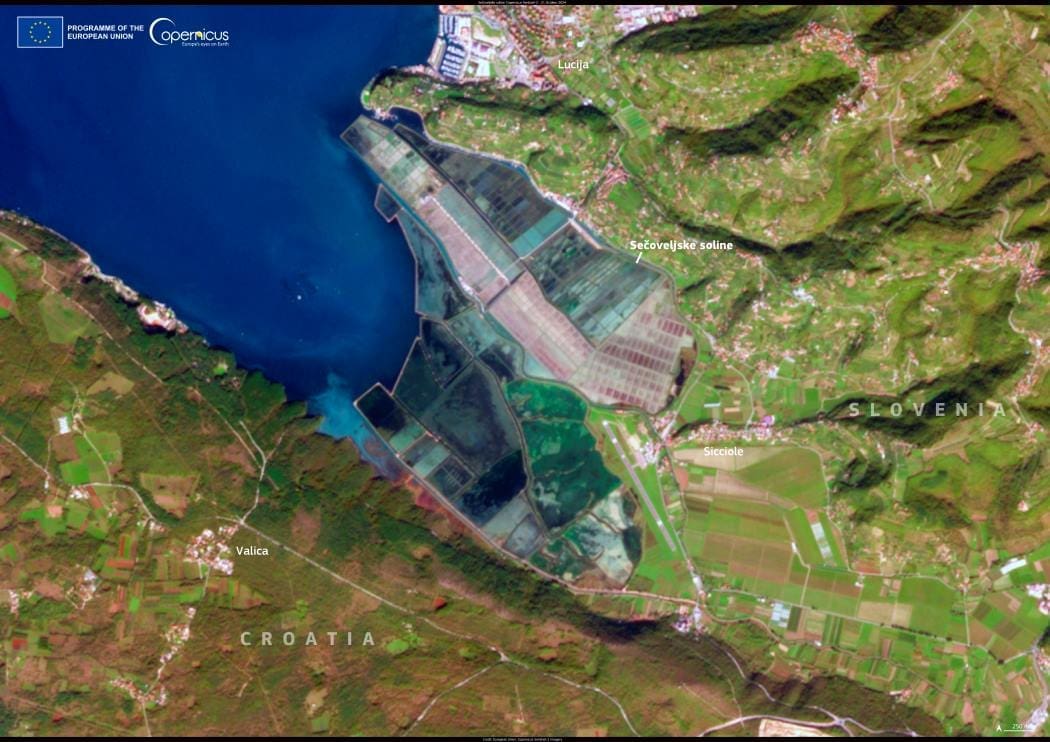Each year on 2 February, World Wetlands Day highlights the crucial role of wetlands in preserving biodiversity and maintaining environmental health. One of these vital ecosystems is Secoveljske soline, a Ramsar-listed wetland in Slovenia. The site, also known as the Sečovlje salt pans, features tidal mudflats, salt pans, and saltmarsh, supporting a rich diversity of wildlife.
This protected area provides habitat for numerous species of breeding, wintering, and migrating waterbirds, alongside rare invertebrates and salt-tolerant plants. In addition to its ecological significance, the site has been a center for salt production for centuries, with around 40% of the area still used as operational salt pans. It also serves as an important location for conservation education, outdoor recreation, and scientific research.

The wetlands are captured in this image taken by the Copernicus Sentinel-2 satellite on 21 October 2024. Satellite data from the Copernicus program plays a key role in monitoring ecosystems like Secoveljske soline, helping to ensure that their biodiversity and environmental functions are preserved for future generations.
Featured image credit: European Union, Copernicus Sentinel-2 imagery




